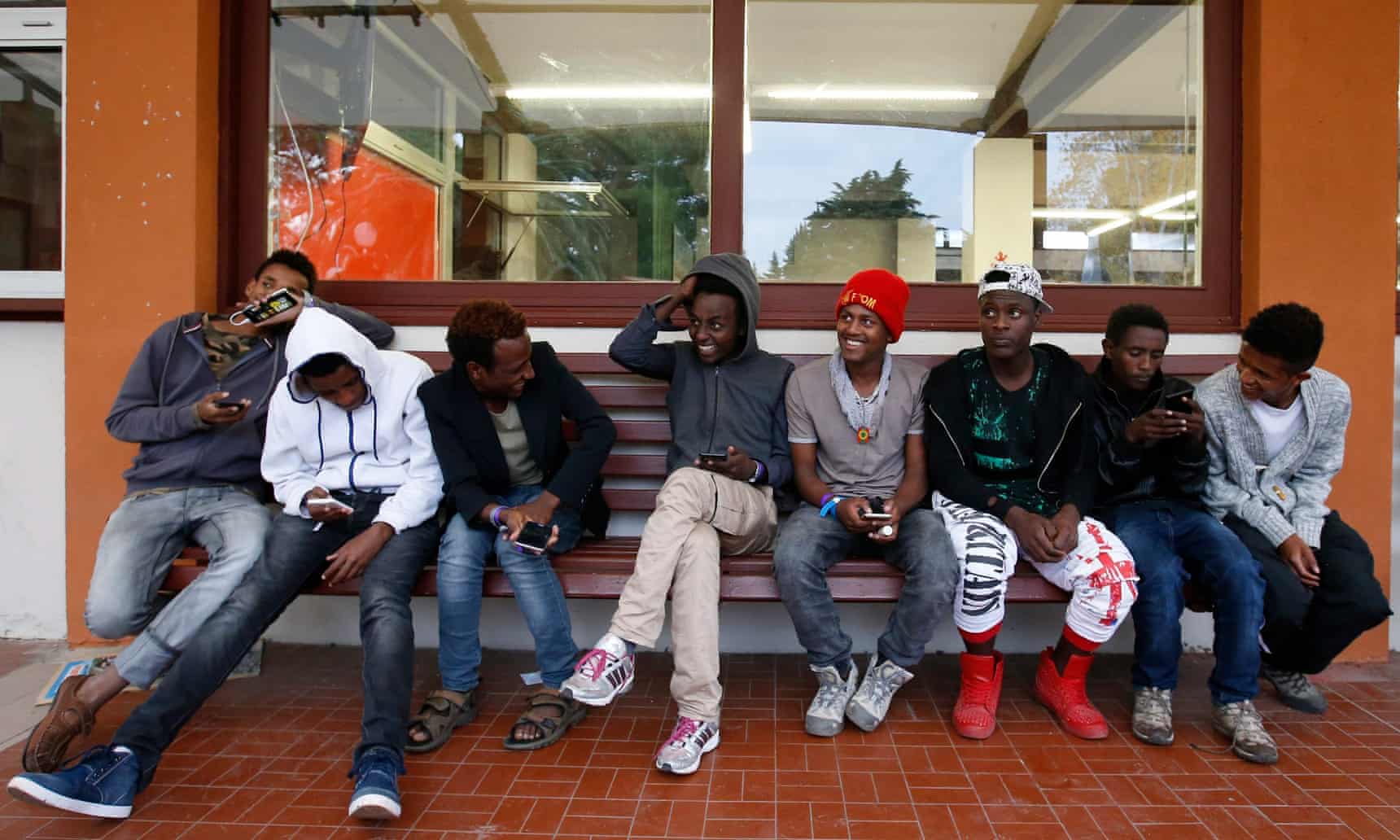|
||||||||||||||||
|
Colombia Signs Revised Peace Deal
By Cintia Garcia
Impunity Watch Report, South America
BOGOTA, COLOMBIA—The President of Colombia, Juan Manuel Santos and FARC leader, Rodrigo Londono, also known as Timochenko, signed a revised peace deal ending fifty-two-years of war. The new signing comes after the previous deal was rejected by the citizens of Colombia on October 2. The new deal will not be put to a popular vote, instead the deal will be given to Congress for approval.

Unlike the previous signing of the deal, which was attended by 2,500 people including dignitaries, the new signing took place in a ceremony of 800 attendees in Bogota at the Colon Theatre. The revised deal includes the concerns of the citizens who voted against the previous deal. President Santos reminded Colombia of the urgency to approve the deal and ending Colombia’s civil war. He stated, “This new accord allows us to work together as a nation to recover the most affected regions due to conflict, to reconcile ourselves, to make use of new opportunities for growth and progress.”
The revised deal includes changes to fifty-seven points in the original document such as: the FARC will need to hand over its assets to the government, which the government will use to compensate victims of the war; Family values were addressed in accordance to the concerns of religious communities; a 10 year limit was put in place for the transitional justice system; FARC must provide information in connection to drug trafficking; the deal will not be integrated into the constitution.
The deal did not include tougher penalties and sentences for the FARC nor did it bar the FARC from political participation.
Congress is expected to vote on the deal within the next week. The deal must receive majority votes. Former president Uribe and his party, the Democratic Centre, will cast a No vote. They claim that the revised deal does not address their concerns, including harsher penalties against FARC members. They are also demanding for a popular vote. It is believed that the deal will pass since the president’s party holds the majority within Congress.
For more information, please see:
Wall Street Journal—Colombia’s Santos Inks New Peace Deal With FARC—25 November 2016.
AL Jazeera—Colombia Signs Revised Peace Deal With FARC Rebels—24 November 2016.
BBC—Colombia Signs new Peace Deal with FARC—24 November 2016.
Egyptian Human Rights Activist Banned from Travel
by Yesim Usluca
Impunity Watch Reporter, Middle East
CAIRO, Egypt — On Wednesday, November 23rd, a prominent Egyptian human rights activist was banned from leaving the country as she attempted to board a plane.

Ms. Aida Seif Al-Dawla, Director of the El Nadeem Center for Rehabilitation Victims of Violence, was attempting to board a flight before she was stopped by Egyptian authorities. A statement released by the Center indicated that she was traveling to Tunisia to attend a conference bringing together NGOs working on rehabilitating victims of violence in North Africa.
An airport security official stated that the travel ban was implemented because of Ms. Al-Dawla’s involvement in the “ongoing trial implicating the majority of the most active human rights groups in Egypt.” Ms. Al-Dawla issued a statement in which she indicated that the travel ban is aimed at “eradicating the rights movement” in an attempt to cover up the government’s systematically committed violations. Her statement further indicated that the government’s attempt to “prevent individuals who dedicated their efforts to support and alleviate the pain” of violence victims “will not work.” Egyptian human rights activists stated that the travel bans are “part of the authorities’ attempts to silence criticism from civil society groups.”
The Egyptian government had attempted to shut down the Center earlier this year. In February, the Health Ministry had threatened to close the Center due to “violations,” which included “shifting its focus from operating as a medical facility to working in human rights and advocacy.” The threat had attracted local and international criticism and outcries from rights groups. In early November, Egypt’s Central Bank had ordered the freezing of the El Nadeem Center’s bank account. The Bank had lifted the freeze shortly thereafter when the Center documented that it does not fall under the authority of the Social Solidarity Ministry.
Ms. Al-Dawla is one of many human rights activists who have been banned from travel for their involvement in the country’s pending foreign funding case. Earlier this week, the Egyptian legislature also ordered issued travel bans for Ms. Azza Soliman, lawyer and head of the Center for Egyptian Women Legal Assistance, and Mr. Ahmed Ragheb, lawyer and Director of the National Community for Human Rights and Law. Both were on their way to attend international conferences, and were informed that the ban was the result of a judicial order, issued without their knowledge, regarding the case involving illegal foreign funding of NGOs.
For more information, please see:
Ahram Online—Egyptian activist Aida Seif El-Dawla banned from travel: Nadeem Centre—23 November 2016
All Africa—Egypt: El Nadeem Center Director Aida Seif El Dawla Banned From Travel—23 November 2016
New York Times—A Top Egyptian Human Rights Activist Banned From Travel—23 November 2016
Financial Times—Egypt imposes travel bans on human rights activists—23 November 2016
Relocated Refugee Children from Calais Forced into Labor
By Sarah Lafen
Impunity Watch Desk Reporter, Europe
PARIS, France — Child refugees, who have been sent away from the migrant camp known as the “Jungle” in Calais, France to other parts of the country, have allegedly been forced into physical labor at their new locations.

Safe Passage, an organization run by the immigration charity Citizens UK, claims that refugee children are being forced to work on local farms without pay. Legal interviews of unaccompanied refugee children were conducted, in which minors told interviewers that they were ordered to work on farms picking apples for French supermarkets. The minors were too scared to refuse the work because they feared doing so would harm their chances of claiming asylum in the United Kingdom.
Of 33 teenage boys interviewed, one quarter admitted they have not been given clean clothes since arriving approximately four weeks ago. 39% of the minors who were interviewed said they felt better off at the Calais camp. On boy interviewed in Northern France told interviewers “[i]t is horrible. We worked all day picking apples and were left to eat the rotten ones. The rest went to be sold in France. We just want to be with our family in the UK.”
Many minors are considering or have already absconded from their base centers, as they are not being given enough information about the status of their asylum claims. Three of the boys have not spoken to anyone official regarding their asylum claim since their arrival at the center. Two of the boys interviewed said they were considering running away from the center they were living in, and two who were originally scheduled to be interviewed had already run away.
About one quarter of the boys interviewed said they had not received clean clothes since their arrival, however they all said they had access to shower, hot water, and at least three meals per day.
Rabbi Janet Darley, Citizens UK Leader, said that the group is “hugely concerned about the safeguarding of children in the CAOs in France.” Darley emphasized that while “the CAOs are, on the whole, safe places for the children to live, they cannot be used as an excuse to delay the transfer of children to the UK.”
In addition to taking part in forced labor, minors have also reported that they are being forced to share living accommodations with adults.
For more information, please see:
RT — Refugee Children from Calais Camp Forced to Work on Farms in France – Report — 20 November 2016
The Guardian — Child Refugees Forced to Work for Nothing After Leaving Calais — 19 November 2016
Ukraine Marks ‘Dignity and Freedom Day’ as National Holiday
By Sarah Lafen
Impunity Watch Desk Reporter, Europe
KIEV, Ukraine — Three years ago, on November 21, 2013, the people of Kiev, Ukraine took part in an anti-government protest in the streets of the city. The events were called “Revolution of Dignity” by the victors of the protest, who successfully took power of the right-winged radicals and promises of integrating Ukraine into the European Union.

The 2013 protests, which resulted in over 100 deaths and an ousted government and president, are also known as “Euromaiden.” The Euromaiden movement started when protestors gathered in Kiev after then-president Viktor Yanukovych announced he declined to sign a trade deal with the EU and instead sought a closer economic relationship with Russia. Protestors saw the trade deal as a path towards adopting a European standard of living, as well as possibly visa-free travel in the EU. After the protests, Yanukovych fled to Russia and was subsequently removed from office.
This year, November 21 was declared a national holiday in Ukraine, and was given the name “Dignity and Freedom Day.” As a part of the commemorations, government officials, protest participants, clergy, youth organizations, and Ukrainian citizens held ceremonies across the country. Flowers were placed on a monument honoring those who were killed in the protests, and a “revolution march” was organized to take place in Kiev on the holiday.
Ukrainian President Petro Poroshenko spoke at one of the ceremonies, calling on the nation to unite and stand together against the Russian “threat.” Poroshenko insisted that “[t]he Revolution of Dignity put an end to our Russian-Soviet past and the post-Soviet period. It has separated our Ukrainian and European world from the Russian world.” Poroshenko went on to congratulate the Ukrainian citizens, and thanked them for building “our European state together!” He stressed that since the 2013 protests, the “basis for a new Ukraine was laid.”
The November 21 holiday also recognizes and honors the 2004 Orange Revolution. The revolution also began in November, and marked the first majority vote for a pro-European Union candidate.
Approximately 21,000 law enforcement officials will be present at the ceremonies and demonstrations across Ukraine to ensure public order.
For more information, please see:
Radio Free Europe Radio Liberty — Ukraine Marks Third Anniversary Euromaiden — 21 November 2016
RT — Ukraine Marks ‘Dignity & Freedom Day’ as Euromaiden Dream Falters — 21 November 2016
Ukraine Today — Ukraine Marks Day of Dignity and Freedom — 21 November 2016

